
The Pristine Wilderness of Baboon Island
Nestled within the lush landscape of The Gambia, Baboon Island is a hidden gem for nature lovers and adventurers alike. This enchanting destination is part of the River Gambia National Park and offers a unique opportunity to observe wildlife in their natural habitat. The island is renowned for its population of chimpanzees, making it a must-visit for primate enthusiasts. As you explore Baboon Island, you will be surrounded by dense forest teeming with life. The island's diverse ecosystem supports a variety of species, including hippos, crocodiles, and an array of birdlife. Whether you're cruising along the river or trekking through the jungle, the sights and sounds of this untouched wilderness will captivate your senses. Beyond its natural beauty, Baboon Island also plays a crucial role in conservation efforts. The Chimpanzee Rehabilitation Project, located on the island, works tirelessly to protect and reintroduce chimpanzees into the wild. Visiting Baboon Island not only offers a memorable adventure but also supports vital conservation work, making it a meaningful travel experience.
Local tips in Baboon Island
- Plan your visit during the dry season between November and May for the best wildlife viewing opportunities.
- Consider booking a guided river safari to maximize your chances of spotting diverse wildlife.
- Wear light, breathable clothing and bring insect repellent to stay comfortable during your explorations.
- Support local conservation efforts by visiting the Chimpanzee Rehabilitation Project on the island.
- Pack a good pair of binoculars for bird watching and wildlife spotting.
The Pristine Wilderness of Baboon Island
Nestled within the lush landscape of The Gambia, Baboon Island is a hidden gem for nature lovers and adventurers alike. This enchanting destination is part of the River Gambia National Park and offers a unique opportunity to observe wildlife in their natural habitat. The island is renowned for its population of chimpanzees, making it a must-visit for primate enthusiasts. As you explore Baboon Island, you will be surrounded by dense forest teeming with life. The island's diverse ecosystem supports a variety of species, including hippos, crocodiles, and an array of birdlife. Whether you're cruising along the river or trekking through the jungle, the sights and sounds of this untouched wilderness will captivate your senses. Beyond its natural beauty, Baboon Island also plays a crucial role in conservation efforts. The Chimpanzee Rehabilitation Project, located on the island, works tirelessly to protect and reintroduce chimpanzees into the wild. Visiting Baboon Island not only offers a memorable adventure but also supports vital conservation work, making it a meaningful travel experience.
When is the best time to go to Baboon Island?
Iconic landmarks you can’t miss
Bijilo National Park
Explore Bijilo National Park, a natural wonder in Gambia, teeming with wildlife and breathtaking landscapes perfect for nature lovers.
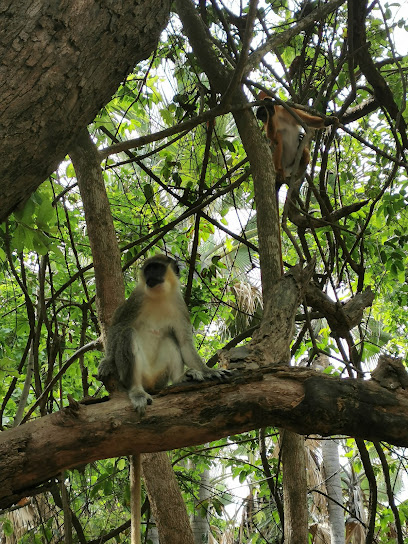
Stone Circles of Gambia
Explore the ancient wonders of the Stone Circles of Gambia, a UNESCO World Heritage Site rich in history and mystery, nestled in the beautiful landscape of Wassu.
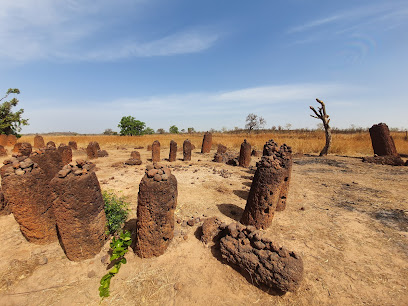
Kairoh Garden Kuntaur
Experience tranquility at Kairoh Garden in Kuntaur, a serene lodging oasis surrounded by nature's beauty in The Gambia.

Fort Bullen
Explore Fort Bullen, a historical landmark in The Gambia that narrates the stories of colonial times and maritime heritage along stunning coastal views.
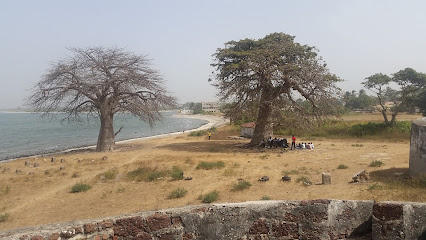
Slave House
Discover the profound history of the Slave House in Janjanbureh, a poignant reminder of the transatlantic slave trade and its lasting impact.
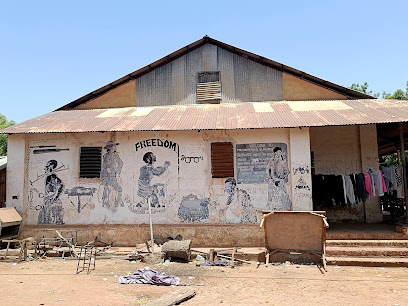
Ker Batch Stone Circles
Discover the ancient wonder of Ker Batch Stone Circles, a serene archaeological site rich in history and natural beauty, perfect for curious travelers.
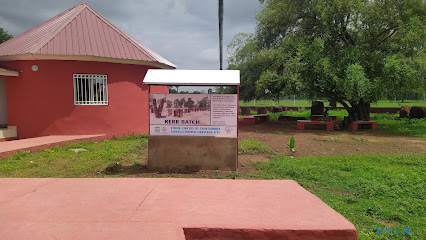
Kunkilling Forest Park
Discover the tranquil beauty of Kunkilling Forest Park, a natural oasis in The Gambia perfect for nature lovers and adventure seekers.

Abbaustätte der Steinkreise von Wassu
Explore the ancient Wassu Stone Circles, a UNESCO World Heritage site, and uncover the mysteries of Gambia's historical landscape.

Unmissable attractions to see
Bijilo National Park
Explore the natural beauty and diverse wildlife of Bijilo National Park, a tranquil haven for nature lovers in The Gambia.
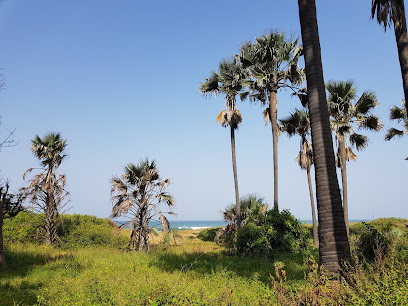
Sapu Rice Fields
Experience the serene beauty of Sapu Rice Fields, a renowned birdwatching area in Brikama Ba, where nature and tranquility meet.
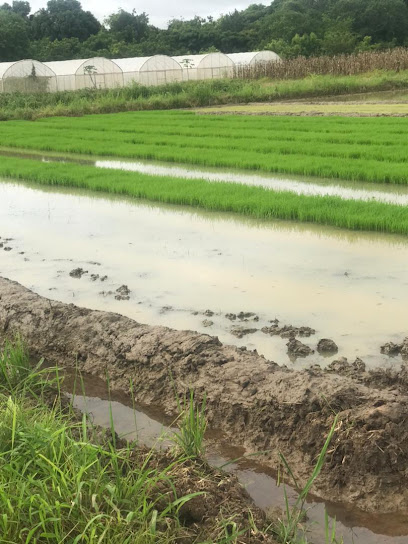
Le Guib
Explore Le Guib in Alimaka, a tranquil tourist attraction that unveils the beauty and culture of the Gambian landscape.

Freedom Tree Monument
Explore the Freedom Tree Monument in Janjanbureh, a powerful symbol of resilience and cultural heritage, embodying the spirit of freedom in Gambia.
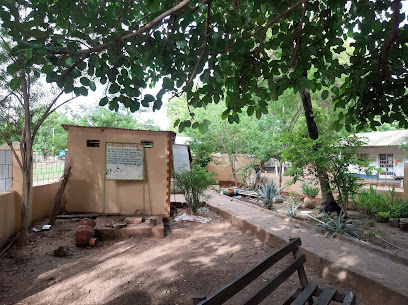
Njiekunda Agrifarming
Experience the tranquility and beauty of Njiekunda Agrifarming, where nature meets sustainable agriculture in the heart of Gambia.
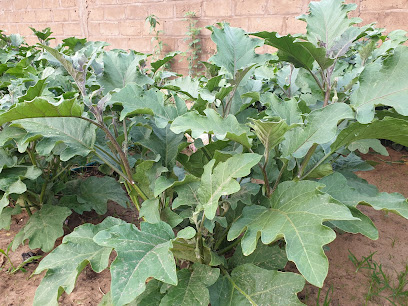
Farola 1 ASPERPOL
Explore the beauty and tranquility of Farola 1 ASPERPOL Park in Sukuta, a perfect retreat for nature lovers and families alike.

Boussou mbalo 1
Experience the enchanting beauty and rich culture at Boussou Mbalo 1, a top tourist attraction in Bureng, Gambia.

Kunkilling Forest Park
Explore Kunkilling Forest Park, a stunning natural escape in Janjanbureh, Gambia, perfect for hiking, birdwatching, and immersing in nature's tranquility.

Yello, tenda Community Primates project
Explore the Yello, Tenda Community Primates Project in Yelitenda for an unforgettable wildlife experience in The Gambia, promoting conservation and education.

Sami wollof (karantaba)
Explore the cultural richness and natural beauty of Sami Wollof, a must-visit tourist attraction in The Gambia, perfect for immersing in local traditions.

Madina Demba Forest Park
Discover the tranquility and natural beauty of Madina Demba Forest Park, a lush national park perfect for hiking, picnicking, and wildlife watching.

Gassang Forest Park
Explore Gassang Forest Park in Doki Alla, a serene state park filled with lush landscapes, diverse wildlife, and endless recreational opportunities for all.

Janjanbureh Area Council
Explore the historical gems and vibrant culture of Janjanbureh Area Council in Mccathy, The Gambia, a hidden treasure for every traveler.
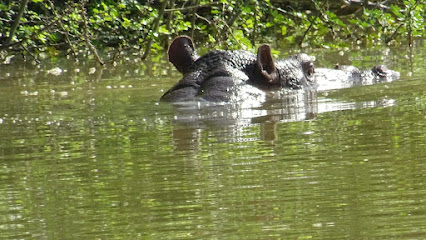
Fallys boat trips
Explore the stunning landscapes and vibrant wildlife of Gambia with Fallys Boat Trips, offering unforgettable water adventures in Bani.

Kiberi Forest Park
Explore Kiberi Forest Park: A tranquil state park in Fitu Fula, Gambia, rich in wildlife and perfect for nature lovers seeking peace.

Essential places to dine
Poco Loco Beachbar Gambia
Experience vibrant nightlife and delicious cuisine at Poco Loco Beachbar in Serrekunda, Gambia - your ultimate beach escape.
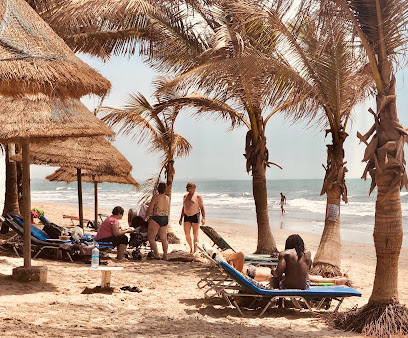
Mo2 Jamaican Bar & Restaurant Gambia (Mosiah's)
Discover authentic Jamaican cuisine at Mo2 Jamaican Bar & Restaurant in Serrekunda - a vibrant dining experience with rich flavors and warm hospitality.
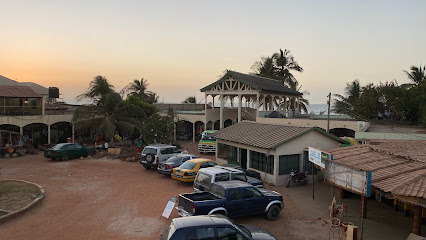
African Queen Restaurant
Experience authentic Gambian cuisine at African Queen Restaurant in Serrekunda - a culinary journey through flavors and culture.
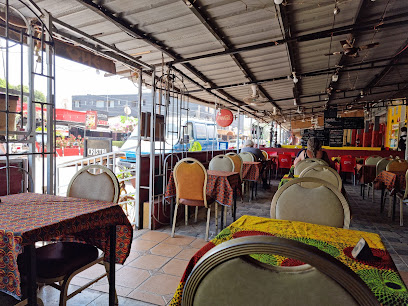
Paradise Beach Club Gambia
Experience authentic Gambian cuisine with ocean views at Paradise Beach Club Gambia in Serrekunda - where flavor meets relaxation.
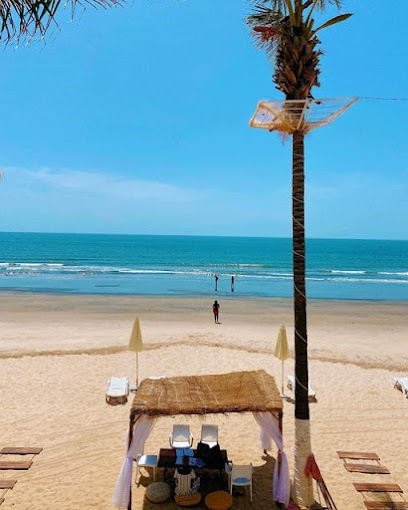
La Parisienne Restaurant
Experience authentic Gambian cuisine with a twist at La Parisienne Restaurant in Serrekunda - where every meal is a celebration.
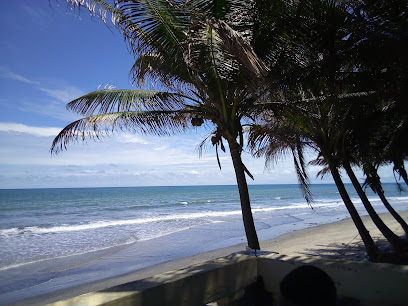
Justice Bar & Restaurant
Experience the best of Gambian cuisine at Justice Bar & Restaurant in Serrekunda - where every meal tells a story.
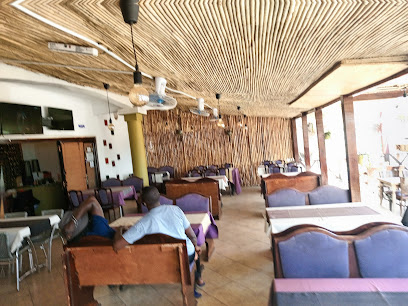
House of Flavour
Discover culinary delights at House of Flavour in Bakau - where family-friendly dining meets authentic Gambian taste.
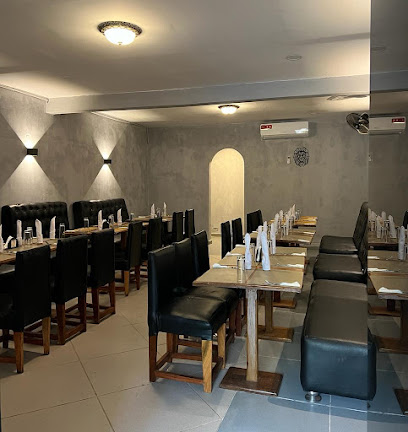
Spice Hub
Experience the rich flavors of Gambian cuisine at Spice Hub, where every dish tells a story and every meal is a celebration.
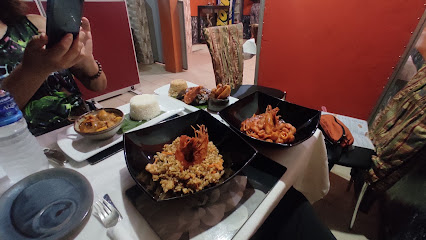
Playa Del Sol
Experience authentic Gambian flavors at Playa Del Sol, where every dish tells a story amidst the vibrant atmosphere of Serrekunda.
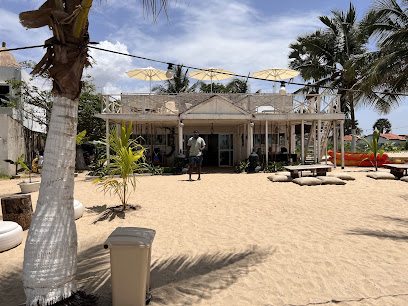
The new wild monkey
Experience authentic Gambian flavors at The New Wild Monkey, a vibrant restaurant in Senegambia known for its delicious cuisine and welcoming atmosphere.
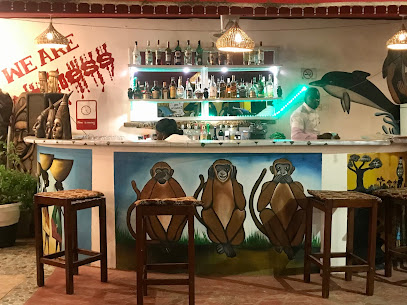
Heritage Restaurant
Experience the rich flavors of Gambian cuisine at Heritage Restaurant in Serrekunda—where every meal tells a story.
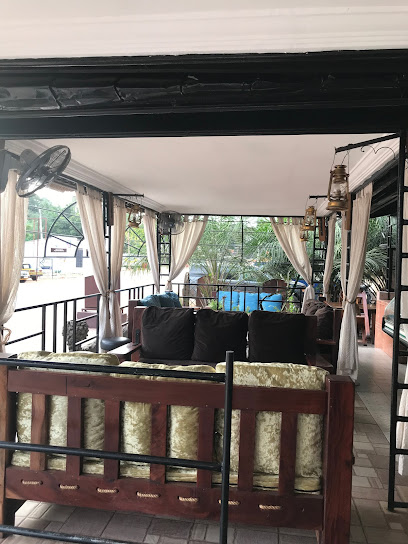
Jamaica Jamaica restaurant and night club
Discover the flavors of Jamaica at this vibrant restaurant and nightclub in Serrekunda, where delicious cuisine meets lively entertainment.
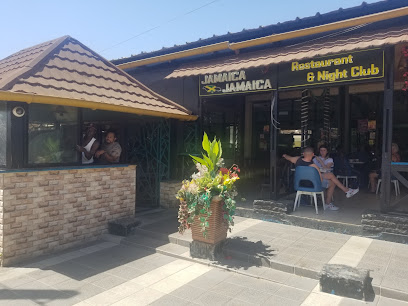
Ginger Restaurant
Experience authentic Gambian cuisine at Ginger Restaurant in Serrekunda – where every dish tells a story.
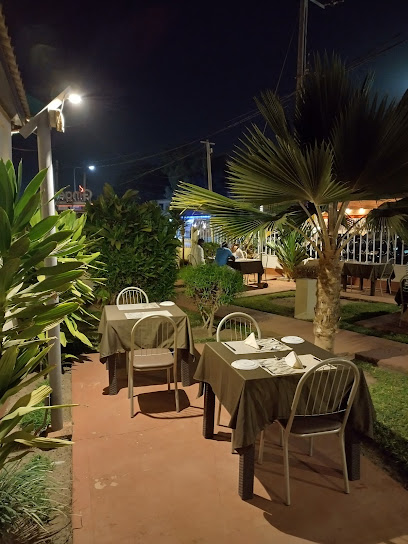
D'nubian Seafood Garden
Discover the best seafood in Serrekunda at D'nubian Seafood Garden - where fresh catches meet authentic Gambian flavors.
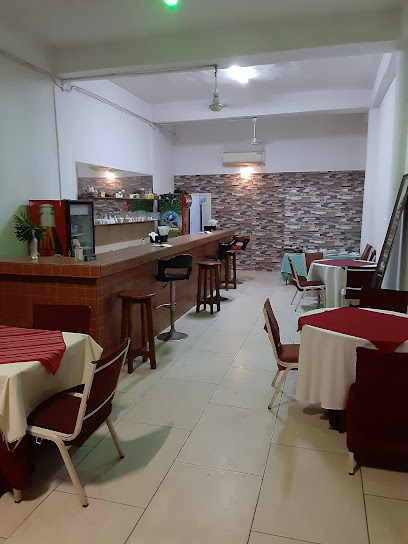
Muna's Bar And Restaurant
Experience authentic Gambian flavors at Muna's Bar And Restaurant in Serrekunda - where great food meets vibrant nightlife.
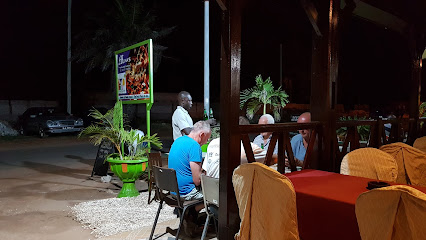
Markets, malls and hidden boutiques
TOP-SHOP
Explore TOP-SHOP in Gambia for exquisite souvenirs, local handicrafts, and unique artworks that embody the spirit of your travels.
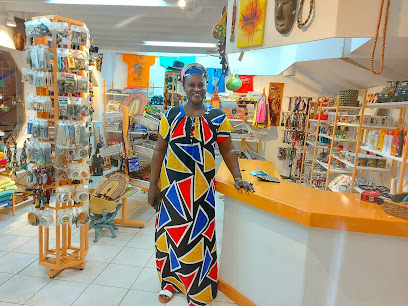
Halabaid Trading Enterprises paradise supermarket
Halabaid Trading Enterprises: Your one-stop grocery store in Farafenni for local flavors and international goods along the Trans-Gambia Highway.
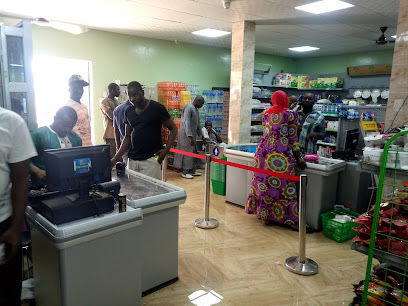
Baboon Island
Explore Baboon Island, a serene wildlife haven in The Gambia, where playful baboons and stunning landscapes await your discovery.
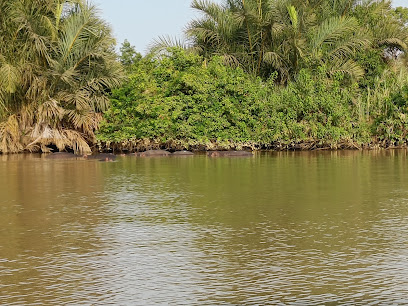
Bansang Market
Discover the lively atmosphere of Bansang Market, a cultural hub for shopping and local cuisine in the heart of Bansang.
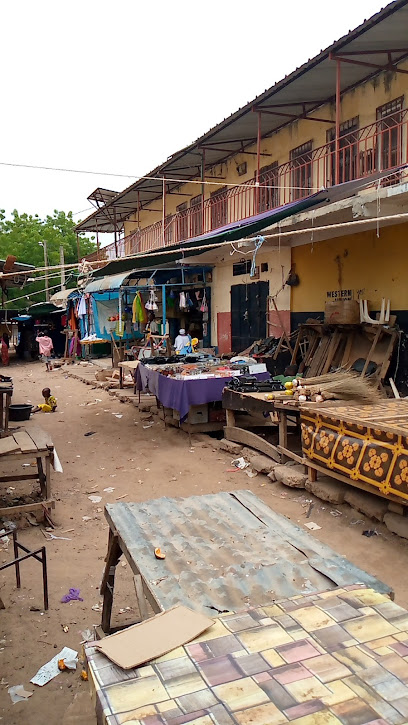
Emporium Banjul
Explore the colorful world of textiles at Emporium Banjul, your gateway to authentic Gambian fabrics and craftsmanship.

Costa road
Experience local flavors and community spirit at Costa Road Grocery Store, the heart of Bureng's vibrant market scene.
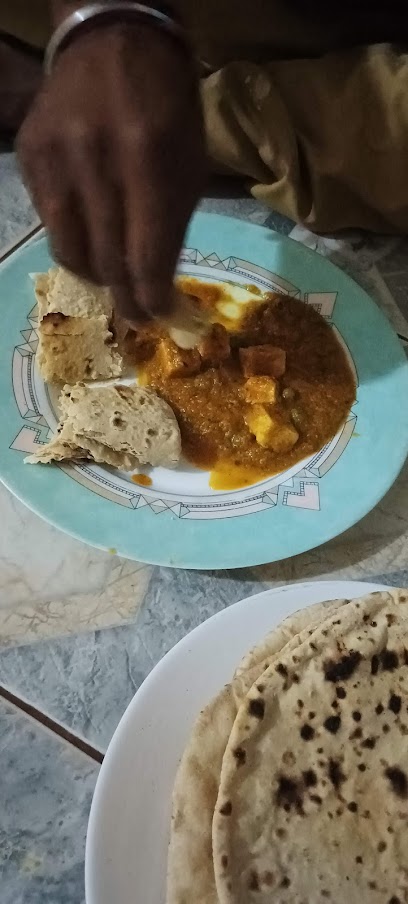
Soma Saremawdou Market
Explore the lively Soma Saremawdou Market, a cultural gem in the heart of Soma, where local traditions and vibrant commerce come together.
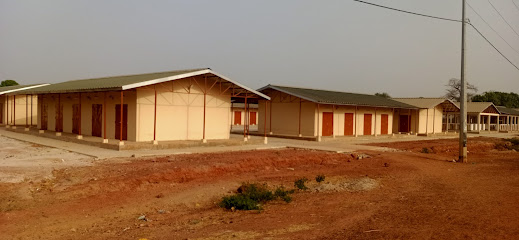
Al Islam shopping father &son
Discover the vibrant shopping experience at Al Islam Shopping Father & Son in Gambia, where local culture meets retail therapy.
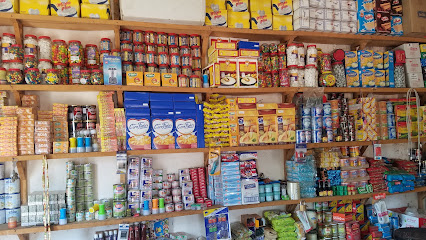
Supermarket Muslim
Experience the vibrant local culture at Supermarket Muslim in Farafenni, where fresh produce and traditional Gambian snacks await.
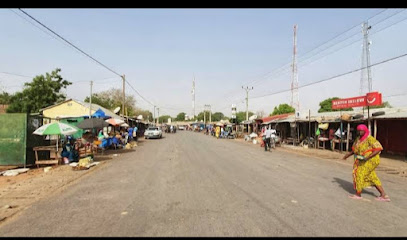
Soma Gassama Shop
Explore the flavors of Gambia at Soma Gassama Shop, a local grocery store in Soma offering unique delights and local products.

JSF- Horticulture Garden Kaiaf Ward LRR
Explore the beauty of nature at JSF-Horticulture Garden Kaiaf Ward, a serene garden center offering vibrant flora and peaceful surroundings.
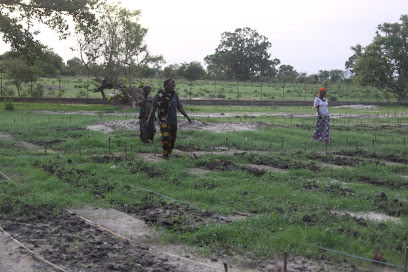
M.M.J building materials Shop
M.M.J Building Materials Shop in Bansang: Your one-stop destination for quality building supplies and expert advice for construction projects.
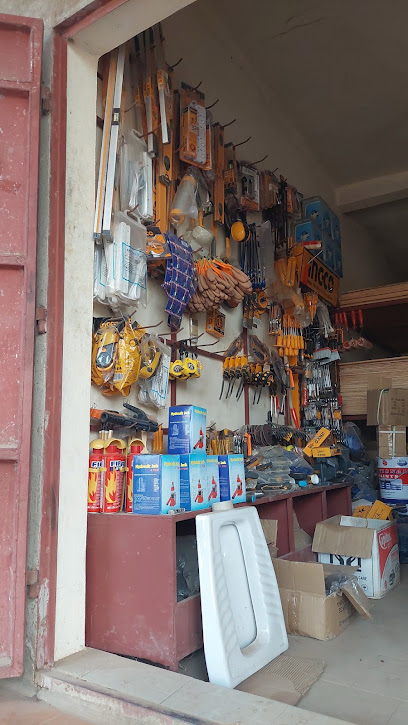
Benteh shop
Explore the vibrant Benteh Shop in Dankunku, offering local snacks, unique souvenirs, and essential goods for every traveler.

Haddy Gaye and Sons’ Shop
Discover the heart of Gambian culture at Haddy Gaye and Sons’ Shop in Farafenni, where local craftsmanship meets friendly service.
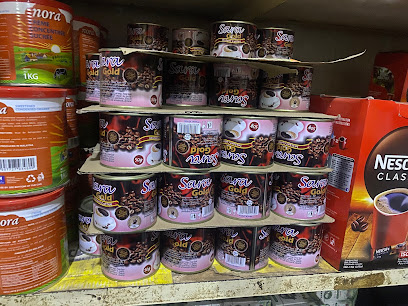
INGCO Shop
Explore Ingco Shop in Soma for top-quality tools and expert advice, perfect for DIYers and professionals alike.
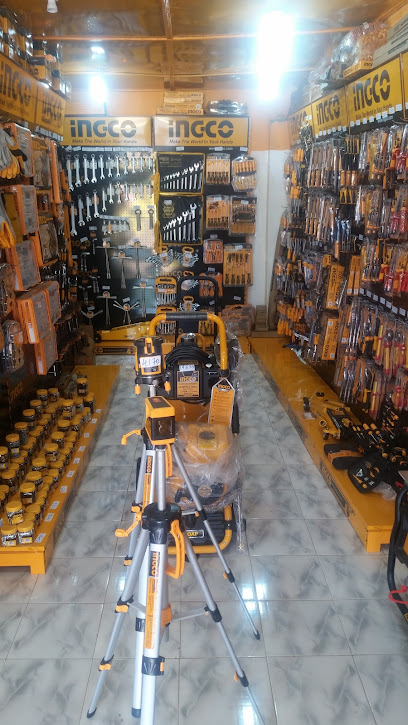
Essential bars & hidden hideouts
Poco Loco Beachbar Gambia
Discover the perfect blend of relaxation and vibrant nightlife at Poco Loco Beachbar in Serrekunda, Gambia, with delightful cuisine and stunning ocean views.
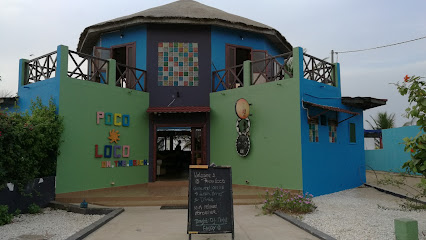
Solomon’s Beach Bar & Restaurant
Discover the vibrant atmosphere of Solomon’s Beach Bar & Restaurant, where delicious food and stunning ocean views meet in Serrekunda.
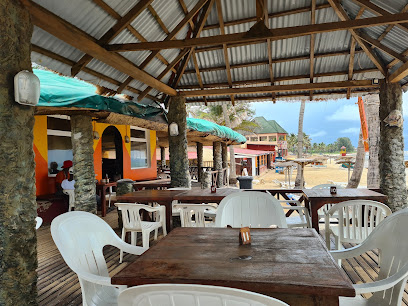
Mo2 Jamaican Bar & Restaurant Gambia (Mosiah's)
Discover the authentic taste of Jamaica at Mo2 Jamaican Bar & Restaurant in Gambia, where vibrant flavors and a lively atmosphere await.
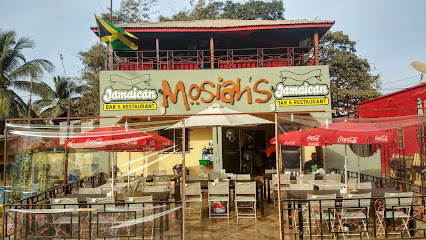
Calypso bar & restaurant
Discover the lively atmosphere of Calypso Bar & Restaurant in Bakau, where delicious food and refreshing drinks meet vibrant nightlife.
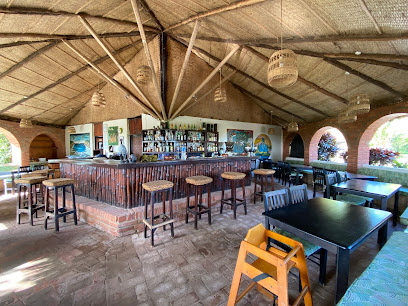
Paradise Beach Club Gambia
Experience the taste of Gambia at Paradise Beach Club, where exquisite cuisine meets breathtaking ocean views for an unforgettable dining experience.
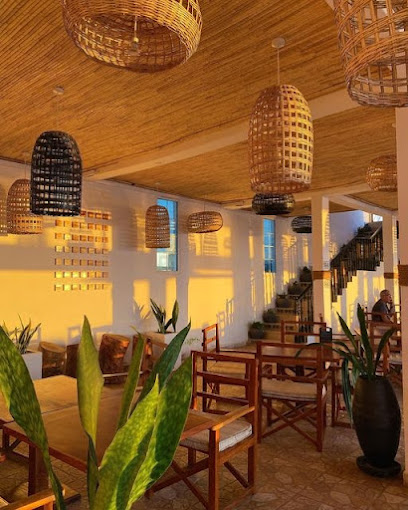
Roots Beach Bar & Restaurant
Experience the best of beachside dining at Roots Beach Bar & Restaurant in Bijilo, with stunning views, delicious cuisine, and a vibrant atmosphere.
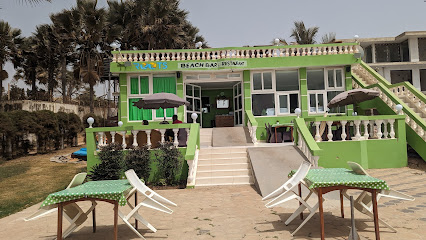
Bendula Bar
Experience the flavors of Janjanbureh at Bendula Bar, where local cuisine meets warm hospitality in a charming atmosphere.
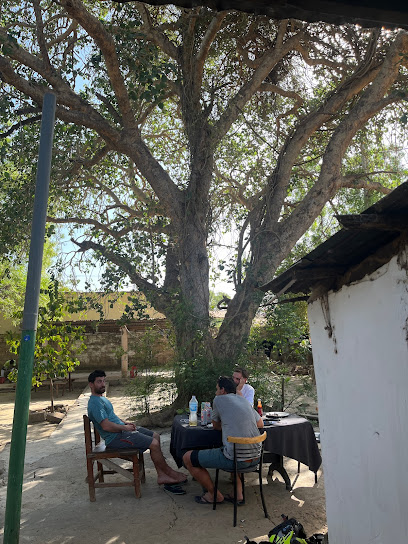
Baboon Island
Explore Baboon Island, a hidden gem in The Gambia, showcasing stunning wildlife and breathtaking landscapes, perfect for nature enthusiasts and adventurers alike.
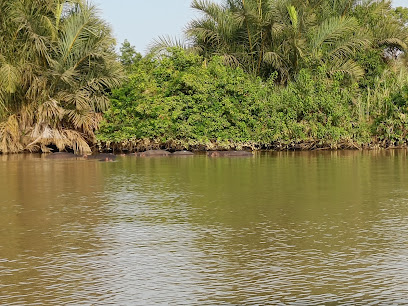
Road Side Pubcamp
Discover the lively ambiance and local flavors at Road Side Pubcamp, where Gambian hospitality meets unforgettable experiences.
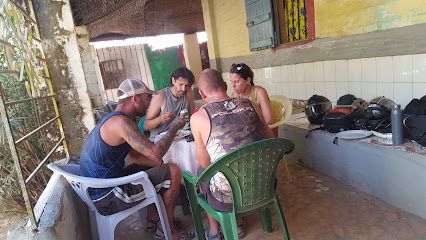
HAPPY CORNER LODGE BAR AND RESTURANT
Experience the authentic flavors of Gambian cuisine at Happy Corner Lodge Bar and Restaurant in Janjanbureh, where culture meets culinary delight.
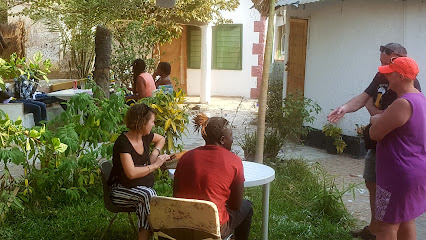
Cheers Bar & Restaurant and Musa River Side Garden
Experience the flavors of Gambia at Cheers Bar & Restaurant, a riverside gem in Janjanbureh offering local and international cuisine.
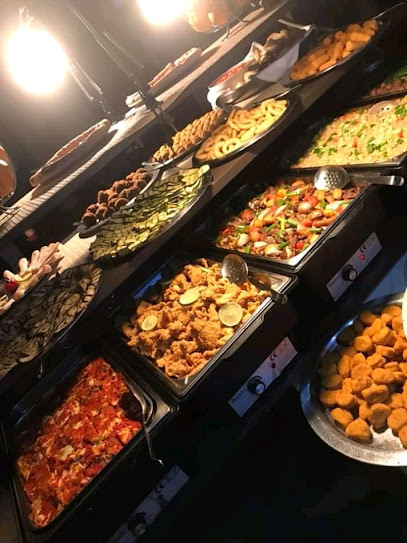
Babou's Food Paradise
Experience the vibrant flavors of Gambian cuisine at Babou's Food Paradise, a delightful restaurant on the Trans-Gambia Highway.
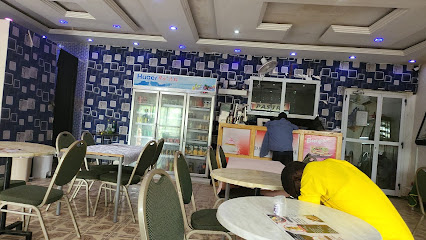
baobolong beach bar
Experience the serene beauty of Janjanbureh at Baobolong Beach Bar, where relaxation meets local culture along stunning coastal views.

Happy Corner Bar and Restaurant
Experience the vibrant culture and delicious cuisine at Happy Corner Bar and Restaurant in Janjanbureh, a true Gambian gem for travelers.
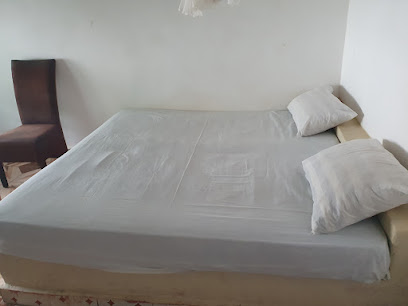
Local Phrases about Baboon Island
-
- HelloSalama
[sa-la-ma] - GoodbyeBa ci jamm
[ba-chi-jam] - YesEe
[ee] - NoAlaa
[a-la] - Please/You're welcomeNjuul ak jëf
[n-jool-ak-jef] - Thank youJërëjëf
[je-re-jef] - Excuse me/SorryBaal ma
[baal-ma] - How are you?Nanga def?
[nan-ga-def] - Fine. And you?Jamm. Nopp
[jam-nop] - Do you speak English?Lu ne angalee?
[loo-neh-an-ga-lee] - I don't understandMaa laa tudd
[maa-laa-tud]
- HelloSalama
-
- I'd like to see the menu, pleaseDama laa yéppa menyu, jërejëf
[da-ma-laa-ye-ppa-men-yu-je-re-jef] - I don't eat meatMaa laa jëb bët
[maa-laa-jeb-bet] - Cheers!Awa
[a-wa] - I would like to pay, pleaseDama laa tàll, jërejëf
[da-ma-laa-tall-je-re-jef]
- I'd like to see the menu, pleaseDama laa yéppa menyu, jërejëf
-
- Help!Nopp!
[nop] - Go away!Noppa!
[nop-pa] - Call the Police!Noppa laa jelit polis
[nop-pa-laa-je-lit-po-lis] - Call a doctor!Noppa laa jelit dokteer
[nop-pa-laa-je-lit-dok-teer] - I'm lostNaa ma ci yoon
[naa-ma-chi-yoon] - I'm illNaa ma fët
[naa-ma-fet]
- Help!Nopp!
-
- I'd like to buy...Dama laa jëpp...
[da-ma-laa-jep] - I'm just lookingMaa laa fokk
[maa-laa-fok] - How much is it?Bi laa baax?
[bi-laa-baax] - That's too expensiveWax naa defal
[wax-na-defal] - Can you lower the price?Lu tax na baax
[lu-tax-na-baax]
- I'd like to buy...Dama laa jëpp...
-
- What time is it?Ñetti ñopp?
[nye-ti-nop] - It's one o'clockBenn benn
[ben-ben] - Half past (10)Samaa (10)
[sa-maa] - MorningKër gi
[ker-gee] - AfternoonKër si
[ker-see] - EveningKër bu
[ker-boo] - YesterdayNoppareel
[nop-pa-reel] - TodayNopp
[nop] - TomorrowNoppa
[nop-pa] - 1Benn
[ben] - 2Jujj
[juj] - 3Nettal
[net-tal] - 4Ñeent
[nyeent] - 5Juroom
[ju-room] - 6Jëf
[jef] - 7Juroom jëf
[ju-room-jef] - 8Juroom ñett
[ju-room-nye-t] - 9Juroom nettal
[ju-room-net-tal] - 10Fukk
[fok]
- What time is it?Ñetti ñopp?
-
- Where's a/the...?Noppa..
[nop-pa] - What's the address?Ñu lay senegaal?
[nyu-lay-se-ne-gaal] - Can you show me (on the map)?Lu ne def (ñuy jog)
[loo-neh-def-nyu-jog] - When's the next (bus)?Ñu jëkk (bus) bi jogi?
[nyu-jekk-bus-bee-jo-gi] - A ticket (to ....)Billet (to ....)
[bil-let-to]
- Where's a/the...?Noppa..
History of Baboon Island
-
Baboon Island, also known as Baboon Islands or Boabolong, is a set of five islands located within the River Gambia National Park in The Gambia. Established in 1978, the park covers an area of approximately 580 hectares and is renowned for its diverse wildlife, including its famous chimpanzee rehabilitation project.
-
In 1979, the Chimpanzee Rehabilitation Project (CRP) was initiated by Stella Marsden, a British conservationist. The project aimed to reintroduce captive and orphaned chimpanzees back into the wild. Over the years, Baboon Island has become a sanctuary for these primates, providing them with a habitat free from human interference. Today, the project is recognized for its successful conservation efforts and is a key highlight for visitors.
-
During the colonial period, the River Gambia played a crucial role in trade and transportation for European powers, particularly the British and the French. Baboon Island, situated strategically in the river, was part of this bustling trade route. The island's proximity to the river made it an important stopover for trading vessels, contributing to the region's economic history.
-
Baboon Island is not only significant for its historical and cultural aspects but also for its ecological importance. The islands are home to various species of flora and fauna, including hippos, crocodiles, and numerous bird species. The dense gallery forests and savannah woodlands provide a unique ecosystem that supports diverse wildlife, making it a key area for ecological studies and conservation efforts.
-
The islands have a rich cultural heritage, intertwined with local legends and folklore. According to local traditions, the islands were once inhabited by ancient tribes who believed in the spiritual significance of the land. These stories have been passed down through generations, adding a mystical aura to the islands and enriching the cultural experience for visitors.
-
In recent years, various international and local organizations have collaborated to enhance conservation efforts on Baboon Island. These initiatives focus on protecting the island's biodiversity, promoting sustainable tourism, and supporting the local communities. Conservationists continue to work towards preserving the natural habitat and ensuring the well-being of the resident chimpanzees and other wildlife.
Baboon Island Essentials
-
Baboon Island is located in the River Gambia National Park. The nearest international airport is Banjul International Airport, approximately 300 kilometers away. From Banjul, you can take a taxi or a bus to the town of Georgetown (Janjanbureh), which is the closest settlement to Baboon Island. The journey typically takes around 6-7 hours by road. From Georgetown, you can hire a local boat to take you to Baboon Island, as it is accessible only by water.
-
Transportation options within the area are limited. Once in Georgetown, you can hire local boats to explore the River Gambia National Park and Baboon Island. It is advisable to arrange transportation in advance through local tour operators. Public buses and shared taxis are available for travel to and from Banjul and other major towns. Renting a car is possible but not recommended due to the rough road conditions.
-
The official currency in The Gambia is the Gambian Dalasi (GMD). Credit cards are accepted in some hotels and restaurants in major towns, but cash is preferred, especially in rural areas like Georgetown and Baboon Island. ATMs are available in Banjul and other larger towns, but it is advisable to carry sufficient cash when traveling to more remote areas.
-
Baboon Island and the surrounding areas are generally safe for tourists. However, standard travel precautions should be taken. Avoid walking alone at night in unfamiliar areas and keep an eye on your belongings in crowded places. Georgetown has a relatively low crime rate, but it is always best to stay vigilant and aware of your surroundings. Petty theft can occur, so keep valuables secure.
-
In case of emergency, dial 117 for the police and 116 for medical emergencies. The nearest medical facilities are in Georgetown, but they may be limited. It is recommended to have travel insurance that covers medical emergencies. For more serious health issues, you may need to travel back to Banjul. Pharmacies in Georgetown offer basic over-the-counter medications.
-
Fashion: Do dress modestly, especially in rural and traditional areas. Avoid wearing revealing clothing. Religion: Do respect local customs and traditions. Always ask for permission before entering religious sites. Public Transport: Do be respectful and patient, as public transport can be slow and crowded. Greetings: Do greet people with a handshake and a polite 'hello.' It is customary to ask about someone's health and family. Eating & Drinking: Do try local dishes and accept food offerings graciously. Don't refuse hospitality, as it is considered impolite.
-
To experience Baboon Island like a local, consider hiring a local guide who can provide insights into the area's history and wildlife. Visit the local markets in Georgetown to buy fresh produce and traditional Gambian goods. Engage with locals, as they are often friendly and willing to share stories about their culture. Don't miss the opportunity to observe the chimpanzees on Baboon Island from a boat, as this is a unique and memorable experience.
Nearby Cities to Baboon Island
-
Things To Do in Soma
-
Things To Do in Farafenni
-
Things To Do in Kaolack
-
Things To Do in Banjul
-
Things To Do in Lamin
-
Things To Do in Bakau
-
Things To Do in Brikama
-
Things To Do in Serekunda
-
Things To Do in Serrekunda
-
Things To Do in Gunjur
-
Things To Do in Bissau
-
Things To Do in Canchungo
-
Things To Do in Buba
-
Things To Do in Mbour
-
Things To Do in Thiès







